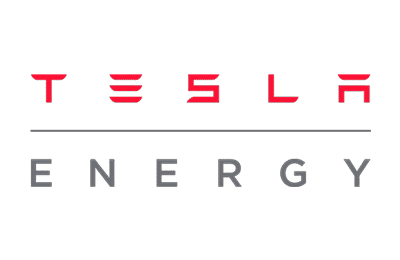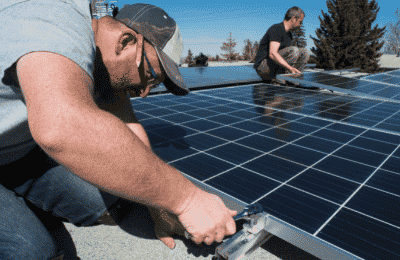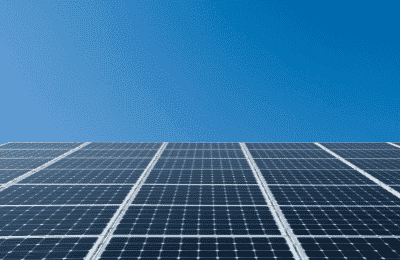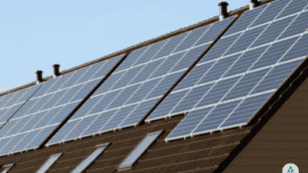
Top 5 Best Solar Companies in Arkansas (2024 Reviews)
In this guide to Arkansas’ best solar companies, you’ll learn
- Our top 5 picks for solar providers in Arkansas
- How we evaluated Arkansas’ solar companies
- What Arkansans should look for when choosing a solar company
Each product and or company featured here has been independently selected by the writer. You can learn more about our review methodology here. If you make a purchase using the links included, we may earn commission.
What Are Arkansas’s Top 5 Solar Energy Companies?
Arkansas’ solar industry is seeing huge growth of late — the state is expected to jump from 30th in the nation to 18th by the end of 2025 in solar capacity installed.1 As more residents switch to solar, more companies are flocking to the state to take advantage of this room for growth; but you may not know which one to choose. To help get you started, here are the solar companies we believe are the best in The Natural State:
- SunPower: Best National Provider
- Seal Solar: Outstanding Local Installer
- ADT Solar: Best Warranty Coverage
- Tesla: Best Technology
- Sun Valley Renewables: Outstanding Local Installer
Ready to see which solar installer is best for you and to get a solar quote? Click the drop-downs below to see our reviews of the top picks for Arkansas solar installers.

SunPower
Pros
- Most efficient panels on the market
- National coverage
- Cradle to Cradle sustainability certification
- Great warranty coverage
Cons
- Expensive
- Customer service varies by local dealer

Seal Solar
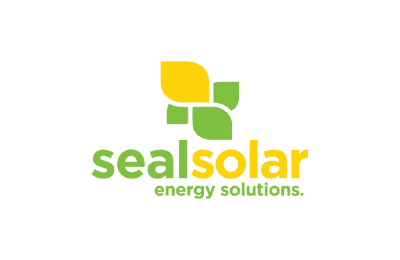
Local Service
Average cost
Pros
- Outstanding customer service
- Great warranty coverage
- Representatives are experts on local policies
Cons
- Limited service area
- Limited brands of solar equipment available
- No leases or PPAs
Seal Solar is a small local company that has been serving Arkansas since 2012. Its small size means that it has limited service coverage, so customers outside of the Little Rock area may need to turn to another company for solar services.
However, its small size means that it can provide unparalleled customer service, constant communication throughout the solar installation process and one-on-one guidance when it comes to claiming the federal tax credit (ITC) and other solar incentives.
Seal Solar provides basic panel installations, as well as solar battery and electric vehicle charger installations. The services provide some customization options, and currently install panels made by SolarEdge, Slifab and even Tesla.
Seal Solar may not be accredited by the Better Business Bureau, but it does have an A+ rating and several customer reviews that rave about smooth installation and professional services. Seal Solar only accepts cash purchases and solar loans, which should be sufficient for most Arkansas residents.
Facts and Figures: Seal Solar
| EcoWatch Rating |
|---|
| Better Business Bureau (BBB) Rating |
| Average Cost ($-$$$$$) |
| Solar Services |
| 4.5 |
| Not Rated |
| $$$ |
| Solar Panels, Solar Batteries, EV Chargers |

Tesla Energy
Pros
- Price-match guarantee
- Sleek, efficient and durable solar panels
- Best solar battery on the market
Cons
- Some reported issues with customer service
- Customer service varies by local dealer
Tesla is best known for its electric cars, but this tech giant has also made a name for itself in the solar industry. In fact, it produces some of the highest-quality solar equipment with outstanding aesthetics and efficiency, all backed by fairly robust warranties.
Tesla’s solar roofing is pricey, but all its other equipment is affordable. In fact, Tesla gives customers a price-match guarantee on its panels to reduce the total cost of its products even further.
Tesla outsources its installations to third-party solar contractors, so customer service can vary depending on which installer is assigned to your solar solution. In fact, its often criticized for its poor customer service, despite offering some of the best technology in the world.
Facts and Figures: Tesla Energy
| EcoWatch Rating |
|---|
| Better Business Bureau (BBB) Rating |
| Average Cost ($-$$$$$) |
| Solar Services |
| 4.5 |
| C |
| $$ |
| Solar Panels, Solar Batteries, EV Chargers, Solar Roof Shingles, System Monitoring |

Sun Valley Renewables

Local Service
Average cost
Pros
- Outstanding customer service
- Offers products from leading manufacturers
- National coverage
Cons
- No leases or PPAs
- Slightly limited service offerings
- Relatively young company
To round out our top-five list, we’ve chosen an up-and-coming solar panel company: Sun Valley Renewables. Younger companies tend to rank lower on our list given the lack of experience, but Sun Valley Renewables has quickly made a name for itself in its more than six years in business.
Sun Valley Renewables is known for great customer service before, during and after installation. It has knowledgeable solar technicians that are willing to help customers take advantage of solar tax credits and local rebates. Although Sun Valley does have an F rating on the BBB, the sample size is very small, and this company’s active customer service team has a good track record of working to address any complaints.
This company provides access to a number of solar equipment brands to help you balance quality and budget. However, it only installs solar panels and provides energy monitoring, so customers looking for battery storage, EV chargers or other add-on products will need to turn elsewhere.
Facts and Figures: Sun Valley Renewables
| EcoWatch Rating |
|---|
| Better Business Bureau (BBB) Rating |
| Average Cost ($-$$$$$) |
| Solar Services |
| 4 |
| Not Rated |
| $$$ |
| Solar Panels, Solar Batteries |
Watch Below: Learn What Arkansas’ Solar Outlook Is and What That Means For You
How Can You Save Money When Hiring A Solar Company In Arkansas
With an average cost per watt of $3.17 that is less than the U.S. average of $3.33, many Arkansas residents pay less for their solar energy system when compared to other U.S. residents. On average, most Arkansas residents can expect to pay between $17,752 and $31,066 after the federal solar tax credit is applied.
However, this $17,000 to $31,000 investment is still expensive and 13 years payback period on solar might seem like a long time, so Arkansas residents continue to look for ways to save on solar energy. Take a look at these three tips to make solar more affordable:
- Utilize Arkansas incentives and tax credits
- Consider the type of solar panel
- Buy the right solar system size
Utilize Arkansas Incentives and Tax Credits
One of the best ways to save money on solar is to utilize all available solar incentives in Arkansas. There aren’t very many in Arkansas, but these cash rebates, tax credits and net metering programs make solar energy more affordable and easier to access than it would otherwise be. Arkansas may not be the leading state for solar incentives, but it does have some programs that you should consider.
| Arkansas Solar Incentive | Description |
| Federal Solar Tax Credit (ITC) | The federal solar investment tax credit (ITC), lets homeowners claim 30% of their system costs as a credit against the federal taxes they owe. |
| Net Metering | Arkansas has a good net metering policy, which enables homeowners to earn credits that can be put toward future utility bills. |
| PACE Financing | Property Assessed Clean Energy (PACE) financing helps cover the upfront costs of energy improvements. This program gives you more time to pay off your solar panels. |
| Local Rebates and Incentives | A few Arkansas utility companies offer cash rebates to customers who go solar. These rebates can range from $10 to $175 for all energy efficiency upgrades. |
Consider the Type of Solar Panel
The more efficient the solar panel, the more expensive that panel will be. If you want to save money on solar panels, the first factor to consider is the efficiency of your panels. The downside of purchasing less efficient solar panels is you’ll need to buy more to power your home, but if your panels have good access to sunlight, they may be able to do more with less. In some cases, you can get away with less efficient panels simply because you get a lot of sunshine.
Arkansas gets about 217 days of sunlight per year, which is above the national average of 205. Depending on the shading of your property and the direction of your roof, you may be able to get by with less efficient panels if you opt to save some money with cheaper solar panels.
Buy the Right Solar System Size
You shouldn’t pay for a solar panel system that is too big or too small. Too big, and it will consistently overproduce. Too small, and you’ll end up spending too much money on electricity still.
Instead, have an energy audit performed on your home so that you know exactly how many panels you need to determine how much energy you use and determine other energy efficiency upgrades you can make to decrease your energy usage. This energy audit will directly determine the size of your solar panel system, which can prevent you from overspending on solar.
See Also: Calculate How Much You Can Save By Going Solar
Will Solar Increase Your Home Value In Arkansas?
Solar panels are good for more than just covering the cost of your electricity bill — solar projects can increase your home’s value by up to 4.1%.2 With the average price of Arkansas homes sitting at $197,411 according to Zillow, you stand to increase your property value by $8,093 or more.3 In addition, many prospective buyers find solar panels desirable, so the addition of solar panels will likely help you sell your home.
Arkansas does not currently have a statewide property tax exemption on renewable energy equipment, so you will have to pay property taxes on the amount your property value increases due to solar power. However, the Arkansas property tax amount is very small compared to the rest of the country. Making getting solar panels in Arkansas worth it.
Should Arkansas Residents Hire a Professional Solar Installer Or DIY?
With electricity rates on the rise, many homeowners have turned to solar panels as a way to cut down on their ever-increasing energy bills. Problem is, solar panels are expensive, and many have wondered if DIY solar installation is an option.
There are other energy efficiency upgrades that can be done safely as DIY projects, but there are several reasons why you should consider hiring a professional solar installer for your solar energy systems:
- Quality installation
- Workmanship warranty
- Safety
Quality Installation
If your solar panels are not installed properly, then they will not produce as much energy as you’d like — if they produce any energy at all. As you are spending so much money on the panels themselves, you want to ensure the system is not only installed properly, but designed and sized properly as well.
Quality installation is more than just installing panels as well. A professional solar installer in Arkansas knows how to install solar panels so that the panels themselves remain undamaged, but your installer will also not damage your roof or home. If you try to install your panels yourself, you could break a panel, punch a hole in your roof or do more serious damage.
Workmanship Warranty
The best solar panel installers offer a workmanship warranty that covers any damage done during a solar panel installation. But if you install your own panels, you will miss out on this money-saving benefit.
Further, the workmanship warranty may not be the only warranty you lose if you install your own panels. Should you damage your panels during installation and try to use your manufacturer warranty, your solar panel company may claim that the damage should fall under a workmanship warranty instead. If that happens, you’ll be out hundreds if not thousands of dollars because you’ll have to pay for panel replacement without financial help.
Safety
Safety is also a major concern for those interested in DIY solar installations. If you do not have any experience with electrical work, you could harm yourself as you try to connect your panels to your home sytem. Unless you install ground-mounted solar panels, you also need to know how to install panels on your roof without harming yourself or damaging your roof.
When you hire a professional solar panel installer, you have peace of mind knowing that your panels will be installed safely with no harm done to you or your home.
What Should Arkansas Residents Look For in a Solar Installer?
As you shop around for the right solar provider, there are several factors that you should keep in mind:
- Warranty
- Year founded
- Services offered
- Brands of equipment offered
- Industry affiliations
- Size of company
- Solar pricing and financing
Warranty
Most solar panel systems include some type of warranty coverage. Solar warranties can be for physical damage, power production, labor or roof penetration.
All warranty coverage is good warranty coverage, but in Arkansas, where rain and other extreme weather events are typical, warranties covering physical damage like roof leaks can bring you peace of mind if any debris falls on your panels. We rank companies that include robust physical protection warranties higher — such as ADT — given that they serve Arkansas customers better.
Year Founded
Solar projects have steadily been increasing in popularity throughout Arkansas. This move to clean energy is great news, but it also has brought a number of “fly by night” companies looking to capitalize on the demand. Young, inexperienced companies are typically more likely to provide poor service, and they can void your warranties if they go out of business.
Consider the year a company was founded and give precedence to solar installers who have proven longevity and long-term success. Although there are some reputable younger companies, you may be more comfortable with a more seasoned installer such as SunPower.
Services Offered
If you’re looking for a more customized installation that includes add-on products like electric vehicle chargers, solar batteries or other equipment or services, some companies won’t be able to help. Installers like Sun Valley Renewables only tackle panel installation, so you’ll have to turn elsewhere if you need other products or services.
Brands of Solar Equipment Offered
Some solar companies only install a single product brand — like Tesla with its own panels and Tesla Powerwalls or SunPower with SunPower’s Maxeon panels — while others carry multiple brands for customization. Customers looking for the most efficient solar panels will find what they’re looking for in SunPower and Tesla, but those who want the cheapest solar panels, for example, will not.
Industry Affiliations
There are many solar organizations, nonprofits and associations that help educate consumers about solar energy, gain access to solar financing and promote conversion to renewable energy. Affiliations with these organizations make a solar installer stand out as an industry advocate and one that is dedicated to making solar more accessible rather than to profit.
Some affiliations we look for include the Solar Energy Industries Association (SEIA), the North American Board of Certified Energy Practitioners (NABCEP) and the Arkansas Renewable Energy Associations (AREA).
Size of Company
Many solar customers are surprised to learn that the size of the company you choose for your solar energy system installation can be a major factor when it comes to your experience and your system’s value.
Smaller local companies typically provide superior customer service but may come at a higher cost. Some might not have the resources to be flexible with installation timelines, but they often have better relationships with local utility companies and permitting agencies, so they can expedite net metering or connection to the grid via your inverter.
Larger national companies usually have lower prices at the expense of customer service and flashy options like Tesla Powerwalls. They also tend to have better flexibility with installation and consultation timelines.
Solar Pricing and Financing
The cost of solar panels from any company will be an important thing to consider for any homeowner, but our team assesses the company’s value in comparison to the cost. For example, companies that only install high-efficiency equipment — like SunPower panels or Tesla Powerwalls — will naturally be more costly, but the better equipment can boost your home value more and save you more on electric bills going forward. Cheaper isn’t always better with solar equipment, so the value is a better metric than cost.
Additionally, the more financing options a company provides, the more accessible they are to customers. Companies that accept cash purchases, solar loans with variable terms, leases, and Power Purchase Agreements (PPAs) tend to rank higher, even though some options are less appealing and beneficial than others.
Methodology: How We Ranked Arkansas’s Solar Companies
When we rank our top solar companies, we start by identifying the factors that matter most when ensuring that our readers find a trustworthy, reliable and environmentally responsible installation. We’ve listed those factors as categories below. We then weigh these factors against the industry benchmark (a company meeting the industry standard in all categories would earn 4 stars in our rating system).
Our goal is to deliver unbiased reports and honest reviews, thus, our methodology is not affected by commercial partnerships and is specifically tailored to Arkansas homes.
- Solar Services (20%)
- Qualifications, Reputation & Certifications (20%)
- Solar Warranty & Customer Support (15%)
- Solar Financing Options (15%)
- Experience (10%)
- Availability (10%)
- Environmental, Social and Corporate Governance Factors (10%)
Solar Services
A company earns a perfect score in this category if it offers: in-house installations, energy storage systems (solar batteries) and home-efficiency audits or upgrades. A company can earn bonus points if it offers additional services that we don’t consider essential, including electric vehicle chargers, home thermostats, etc. The industry standard that we measure against includes solar panel and backup battery installations only.
Most of the companies on our list offer much more than just solar installations. The only company that may score lower in this category is Sun Valley Renewables because it only installs solar panels and performs energy monitoring. Otherwise, SunPower, Tesla, ADT and Seal Solar have other solar services for customers.
Qualifications, Reputation & Certifications
A company earns a perfect score in this category if it is: NABCEP-certified, has a minimum of four stars over its last 100 reviews on Google, an A+ with the Better Business Bureau (BBB) and 4 or more stars on Glassdoor to reflect employee satisfaction and low turnover rate. We give bonus points for additional certifications, such as LEED or with the Building Performance Institute (BPI). We flag a company for further review if it has any track record of lawsuits or customer rights violations.
Many of our top companies, such as SunPower and Seal Solar, have stellar reviews and above-average A+ BBB ratings. However, both Tesla and Sun Valley Renewables have much lower C and F ratings, respectively. Due to these low ratings, both companies do not rate as highly in this category.
Solar Warranty & Customer Support
A company earns a perfect score in this category if it offers 25-year warranties that cover performance, product and workmanship. The industry standard that we measure companies against is 25-year product and performance warranties, along with a 10-year workmanship warranty. We also look closely into the track record of the post-installation support each company provides in terms of honoring its warranties.
Particularly in a state that experiences severe tornadoes, a good warranty can make solar panel systems more desirable. ADT Solar is a clear leader for comprehensive warranties, and even SunPower offers a great warranty plan for Arkansas residents.
Solar Financing Options
A company earns a perfect score in this category if it offers multiple financing options, including in-house options in addition to partner organizations. As many solar companies choose not to offer solar leases and PPAs in the interest of consumer well-being, we do not dock points for companies that don’t offer them.
All of the companies on our list have good financing options for Arkansas homeowners, but Tesla may have an edge over our other options. Tesla offers price matching to help homeowners afford its panels, so you can get quality clean energy for a decent price.
Experience in Arkansas
A company earns a perfect score in this category if it has 10+ years of experience installing solar. The industry standard that we measure against is at least 5 years of experience. All of the companies on our list have met this minimum requirement, but certain companies, such as SunPower and ADT, have more experience than others.
Yet, experience in the state of Arkansas is almost more important than sheer number of solar installations. This is where choosing a smaller local company, such as Sun Valley Renewables, is an advantage. Local companies often know Arkansas regions better and can recommend solar energy systems better than non-local installers.
Availability
A company earns a perfect score in this category if it offers services in the majority of Arkansas. Many of our top companies do offer services throughout the state of Arkansas, but smaller companies, like Seal Solar, may not be able to compete with national providers like SunPower and ADT.
Environmental, Social & Corporate Governance Factors
A company earns a perfect score in this category if it offers public data disclosure, addresses end-of-life (EoL) products or processes and demonstrates a commitment to uplifting the communities that it serves. SunPower ranks highly in this category because its solar panels were one of the first to be Cradle to Cradle certified, which showcases its commitment to sustainable practices.
Read More About Going Solar in Arkansas
- Is Solar Worth It in Arkansas?
- Arkansas Solar Incentives Guide
- Find Cost Savings on Solar Panels in Arkansas
The cost information presented in this article is derived from a comprehensive analysis, incorporating data from multiple industry sources. The average cost per watt per state was calculated based on figures from Consumer Affairs, Energy Sage, and Berkeley Lab’s Electricity Markets & Policy Department. Additionally, monthly energy consumption and the average monthly cost of electricity were sourced from the U.S. Energy Information Administration, ensuring a well-rounded and accurate representation of the information presented.
FAQ: Best Solar Companies in Arkansas
The EcoWatch team is pleased to get tons of questions from Arkansas residents about the solar conversion process and the costs involved. Below are the questions we see most frequently from AK homeowners, along with our responses. If you have specific questions that aren’t answered here, reach out to our team of solar experts at solar@ecowatch.com.
Our EcoWatch rating is a single number designed to give you an at-a-glance idea of how likely you are to be pleased with a solar installer’s service. This number takes more than 20 factors into consideration. Some of the more crucial factors include overall cost, the value provided, how robust the warranty coverage is, the services and products offered and more.
We weigh all of these criteria based on their individual importance to Arkansas residents, specifically, and then combine the scores to get our EcoWatch rating. You can check out our complete process on our methodology page.
Most Arkansas homeowners agree that a company’s physical damage warranty is one of the most important factors to consider. Arkansas residents are well acquainted with extreme weather, including tornadoes and hail. These weather events can easily damage solar panels, so physical protection like wind ratings and overall durability provides peace of mind that your panels will be a worthwhile investment that will provide value for a long time.
Finding the most affordable solar company in Arkansas involves contacting the top providers in the state and getting customized quotes for your home. This process would be quite time-intensive, and the most affordable solar installer isn’t always the one that’s best suited for your rooftop solar project.
Instead, it’s wise to find the company that will provide the most value and still falls within your budget. Cheaper isn’t always better when it comes to solar panels, so a company that costs more could offer higher-quality equipment that will save you more money on your electric bills in the long run.
The Solar Energy Industries Association (SEIA) reports that there are only 37 solar companies in Arkansas. Of these 37, only 16 are dedicated installers that can accommodate residential solar customers.1
The answer to this question really depends on your needs and expectations, as there are pros and cons to small and large companies.
If you’re looking for outstanding customer service or local knowledge, a smaller Arkansas company will probably serve you better. Local companies also often have better relationships with permitting agencies and utility companies and can expedite permitting connection to the grid, or net metering.
On the other hand, a larger national company might be a better option for you if you’re looking for affordability. Larger companies tend to have lower prices, although they lack the customer service and — sometimes — the flashier equipment options, like Tesla Powerwalls. Larger companies can, however, usually expedite installations, as they have larger teams to accommodate more customers.
There were some companies that we found that service Arkansas that we decided to exclude from our rankings altogether. Some companies were excluded because of ongoing litigation with customers, below-average customer service specifically for Arkansas residents, or other problems that might prevent a good customer experience.
Related articles
Top Installers For Arkansas
Comparing authorized solar partners
-
- Most efficient panels on the market
- National coverage
- Cradle to Cradle sustainability certification
- Great warranty coverage
- Expensive
- Customer service varies by local dealer
A+Best National Provider1985SunPower Panels25-year all-inclusive warranty
Having trouble deciding? Click below and use our process to receive multiple quotes instead:

 233k
233k  41k
41k  Subscribe
Subscribe 

